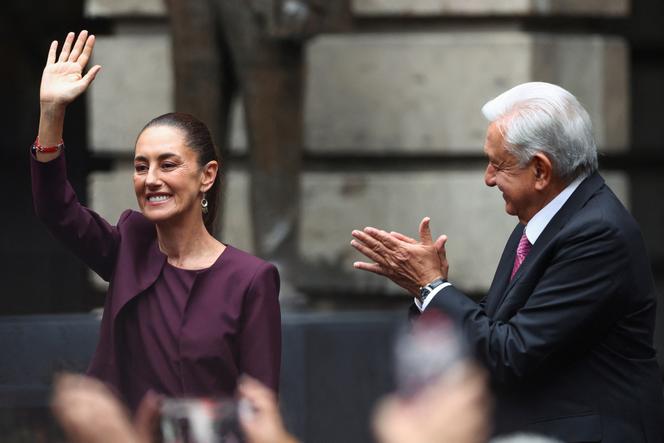


At 7 am on June 3, Mexican President Andres Manuel Lopez Obrador (known as "AMLO") appeared with a broad smile at his daily rostrum, a mañanera ("morning show") broadcast live five days a week on television and which he has been doing since the start of his term in 2018. "I'm very happy, really very happy," he said the day after the victory of his heir, Claudia Sheinbaum, who was elected with 35.9 million votes (59.3%), 6 million more than when he won in 2018. On Tuesday, October 1, she will succeed him as Mexico's president.
The left not only kept the presidency but also won a majority in Congress, enabling it to amend the Constitution in September, the last month of the six-year presidential term. Since then, "AMLO" has kept smiling, treating himself to a farewell tour with Sheinbaum, repeating that she will be an "excellent president" while she presents him as "the best leader in the history of Mexico."
"AMLO" leaves power with over 75% of favorable opinion, an unprecedented rate that Sheinbaum has inherited. During his presidency, the majority of Mexicans saw their economic conditions improve, the minimum wage doubled and 9 million were lifted out of poverty. But with this popular support, the new president has also inherited a more complicated security policy. This began with a betrayal. While the outgoing president had promised to "demilitarize the country," rejecting the war on drug trafficking launched in 2006 by his predecessor, Felipe Calderon, he instead gave the military almost full powers in security matters.
"AMLO" has chosen to avoid confrontation with criminal groups so as not to stir up violence. "The capture of a criminal cannot be worth more than people's lives," he has often said. To achieve the kind of social peace Mexico enjoyed 30 years ago, he has deployed a record number of law enforcement officers – nearly 300,000 – including the new National Guard, formed from the former Federal Police and commanded by the military.
"He wanted to establish a form of coexistence with the drug traffickers by laying down red lines that they were not to cross," said Falko Ernest, a security expert with the NGO Crisis Group. "But with almost 200 heavily armed criminal groups over a large part of the territory, rather than four as in 1990, this strategy has hardly worked."
The hacking of the Ministry of Defense website by the Guacamaya hacker group, in 2022, confirmed that the army was very well informed about criminal groups but took little or no action. What the Americans see as "laissez-faire" has also led to a breakdown in cooperation with US intelligence agencies, a new posture in Mexico's history. "AMLO" has advised Americans to "act at home," against the half a million weapons that enter Mexico illegally every year from the US. Neither Donald Trump's nor Joe Biden's administration responded to Mexico's historic request. That hasn't stopped "AMLO" from cooperating to contain migrants en route to the US border: 20% of the National Guard's manpower has been assigned to the task.
You have 51.28% of this article left to read. The rest is for subscribers only.
